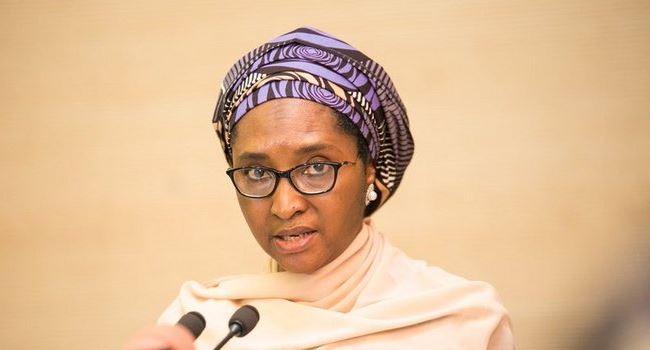Business
Nigeria’s finance minister laments effects of global economic distortions on banking sector

The Minister of Finance, Budget, and National Planning, Zainab Ahmed, said on Tuesday the risk of bank failure in Nigeria has increased due to the rise in social-economic challenges across the world.
She cited the lingering effects of the COVID-19 pandemic, the Russian-Ukraine war, global supply disruptions, and climate change as some of the challenges threatening the stability of the financial system.
The minister, who spoke at the 2022 International Association of Deposit Insurers (IADI) Africa Regional Committee workshop held on Tuesday in Abuja, said the social-economic challenges would erode the public confidence in the banking system.
Ahmed said: “I consider the theme of this workshop very pertinent, in the light of recent socio-economic challenges that have continued to undermine the safety and stability of the financial system across the globe, accentuated by the lingering effects of COVID-19 pandemic, Russian-Ukraine war, global supply disruptions, and climate change challenges. These have posed myriads of challenges and risks to the safety and stability of the global financial system.
“Indeed, the banking sector remains pivotal in supporting the real economy through the provision of innovative products and services to all relevant stakeholders. However, the fiduciary nature of the banking business, coupled with increased social-economic challenges across the globe, has increased the risk of banks’ failure, with significant implications for depositors’ losses and erosion of public confidence in the banking system.
“The negative impact of these challenges on economic growth and financial sector stability in most economies of the world raised a number of questions concerning the role of DIS in contributing to financial system stability. It has equally demonstrated the important role played by the deposit insurance system, as a component of financial safety-net arrangements in most jurisdictions across the globe, given that depositor protection is a critical element necessary for maintaining and restoring financial stability.”
She, however, said no depositors’ funds were lost in the country due to the effort of the Central Bank of Nigeria (CBN) and Nigeria Deposit Insurance Corporation (NDIC) during global economic distortion.
“The Nigerian economy, like others, felt the brunt of the global economic distortion, having to go into recession twice in the space of five years. However, given the resilience of the nation’s financial system, we came out within months. We also make bold to say that despite these economic challenges, no depositors’ funds were lost given the effectiveness of our agencies, most especially the CBN and the NDIC.
“It is well known that DIS, thus provides a financial guarantee to protect depositors in the event of bank failure and therefore forms a critical component of the financial safety-net arrangement. This guarantee offered by the DIS plays a major role in strengthening depositor confidence in the financial system during a crisis.”
Join the conversation
Support Ripples Nigeria, hold up solutions journalism
Balanced, fearless journalism driven by data comes at huge financial costs.
As a media platform, we hold leadership accountable and will not trade the right to press freedom and free speech for a piece of cake.
If you like what we do, and are ready to uphold solutions journalism, kindly donate to the Ripples Nigeria cause.
Your support would help to ensure that citizens and institutions continue to have free access to credible and reliable information for societal development.




















